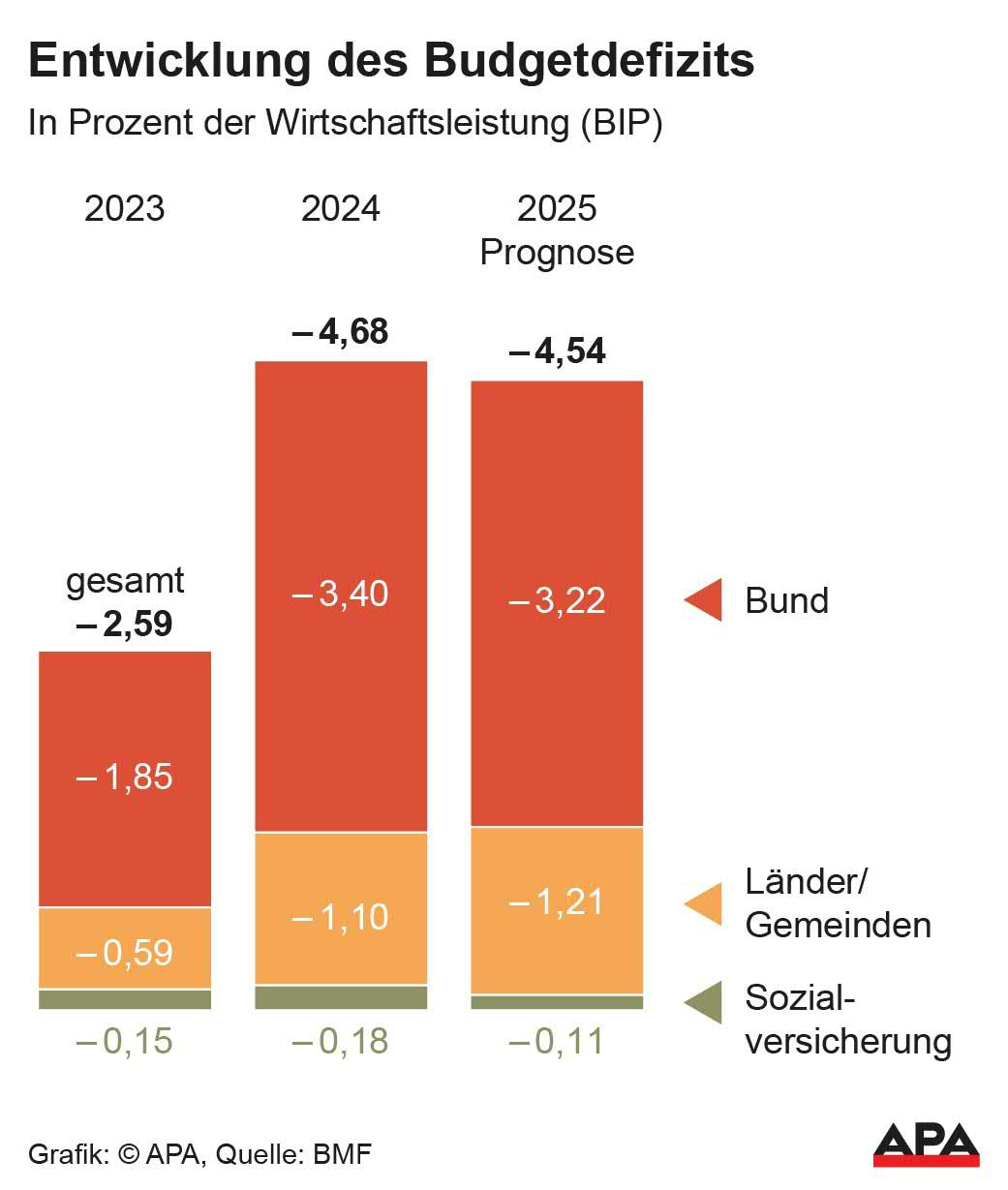Budget deficit to remain at 4.5 percent despite worse forecast

Finance Minister Markus Marterbauer (SPÖ) specifically expects a deficit of over 23 billion. This would correspond to 4.54 percent of GDP, instead of the originally forecasted 4.51 percent. The fact that the Maastricht balance has only minimally worsened despite the forecast deteriorating by a good billion is due to the nominal GDP also increasing accordingly.
Budget Deficit: Successful Federal Government - States and Municipalities Perform Worse Than Expected
Marterbauer emphasized that the federal government has performed quite successfully. In this sector, the deficit is significantly, specifically by a good 800 million, lower than assumed in April and is expected to land at 3.2 percent of GDP or 16.46 billion. State Secretary for Finance Barbara Eibinger-Miedl (ÖVP) attributes this, among other things, to the "strict execution." Maintaining the course is "a very important signal" towards Brussels and the capital markets.

In contrast, states and municipalities, as well as social security, perform significantly worse than the federal government. Here, assumptions have worsened by nearly 1.4 billion and a good 440 million, respectively. The deficit is assumed to be 6.2 billion. According to Marterbauer, the municipalities are primarily responsible for the worse figures, but he simultaneously defended them.
"I believe there are really financing problems there." Therefore, the revenues and expenditures of the municipalities will still need to be addressed. Eibinger-Miedl pointed to the expansion of childcare services and high costs in the social sector.
Willingness to Discuss and Rejections of Municipal Demands
There was no rejection of the increase in property tax pushed by the municipalities, which the department head is willing to discuss, but there were rejections of two other demands. Marterbauer does not want to give the municipalities a share of the revenues from the bank levy or the CO2 taxation. He argued that the municipalities have shown no interest in helping with bank bailouts, which the federal government has always had to shoulder. Regarding the CO2 tax, he needs the revenues because they are still dealing with the costs of the (now abolished) climate bonus.
The representatives of the Ministry of Finance justified the good performance of the federal government partly with the rigid execution and partly with a favorable development in tax and contribution revenues, which compensates for the slightly higher expenditures. The economy has also developed better than predicted in the spring. The autumn forecast of the economic researchers, which follows in October, could show that things are continuing in the right direction. According to Marterbauer, there are a number of indications that the economy is developing better than expected.
The data presented today is based on figures from the federal government for the first nine months and those from the states and municipalities from the first half of the year. Therefore, Marterbauer sees a certain uncertainty factor but remains optimistic about reaching the 4.5 percent: "Our controlling reports suggest that we can achieve this." Updated forecasts for the year 2026 are to be presented in mid-October.
(APA/Red)
This article has been automatically translated, read the original article here.





